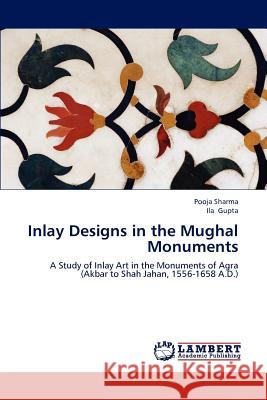Inlay Designs in the Mughal Monuments » książka
Inlay Designs in the Mughal Monuments
ISBN-13: 9783847379072 / Angielski / Miękka / 2012 / 136 str.
Indian artisanship, one of the most creative and richest traditions in the world, blossomed rapidly during the reign of the Mughal dynasty (1526 to 1707 A.D.). The study focused on identification of inlay motifs, design functionality, origin and development of inlay art, factors responsible for inlay designs, aesthetic philosophy, and influence of other arts. In summary, the Mughal inlay art was developed indigenously and bloomed during the period of Jahangir. He had introduced a variety of motifs in inlay such as Hindu inlay designs swastikas, satkona, lotus and Chinese cloud band. Healthy fusion of traditions and cultural aspects of Persian, Hindu, Islamic and Chinese is also reflected in inlay designs. Artistic presentation of inlay designs with unity, harmony and colour symbolism evoked rasas and bhavas (i.e., adbhuta, veera, shringar, shanta, karuna and raudra rasas)-which had left a long-lasting impression on the present world of designers, artisans and viewers.
Indian artisanship, one of the most creative and richest traditions in the world, blossomed rapidly during the reign of the Mughal dynasty (1526 to 1707 A.D.). The study focused on identification of inlay motifs, design functionality, origin and development of inlay art, factors responsible for inlay designs, aesthetic philosophy, and influence of other arts. In summary, the Mughal inlay art was developed indigenously and bloomed during the period of Jahangir. He had introduced a variety of motifs in inlay such as Hindu inlay designs swastikas, satkona, lotus and Chinese cloud band. Healthy fusion of traditions and cultural aspects of Persian, Hindu, Islamic and Chinese is also reflected in inlay designs. Artistic presentation of inlay designs with unity, harmony and colour symbolism evoked rasas and bhavas (i.e., adbhuta, veera, shringar, shanta, karuna and raudra rasas)-which had left a long-lasting impression on the present world of designers, artisans and viewers.











